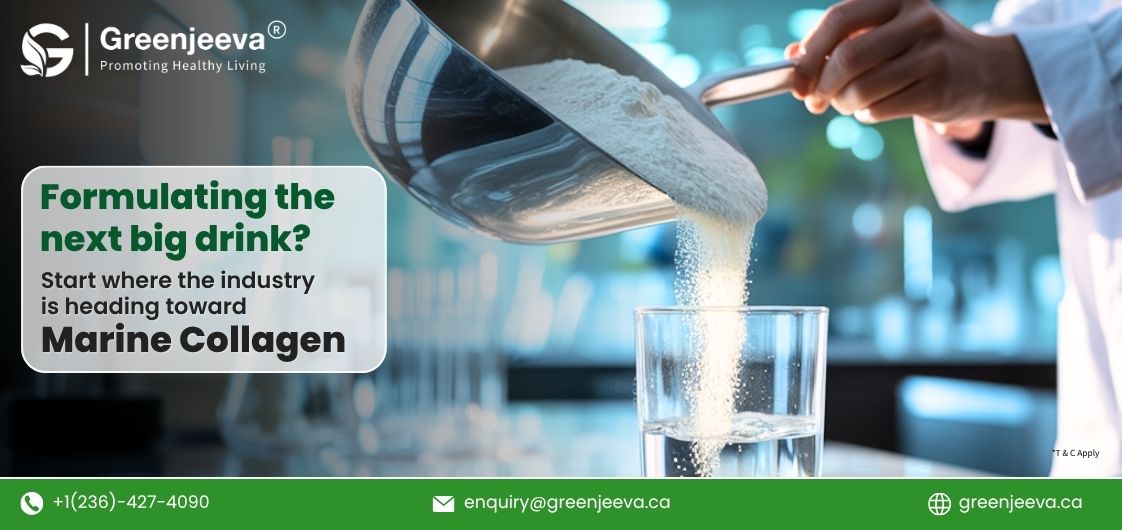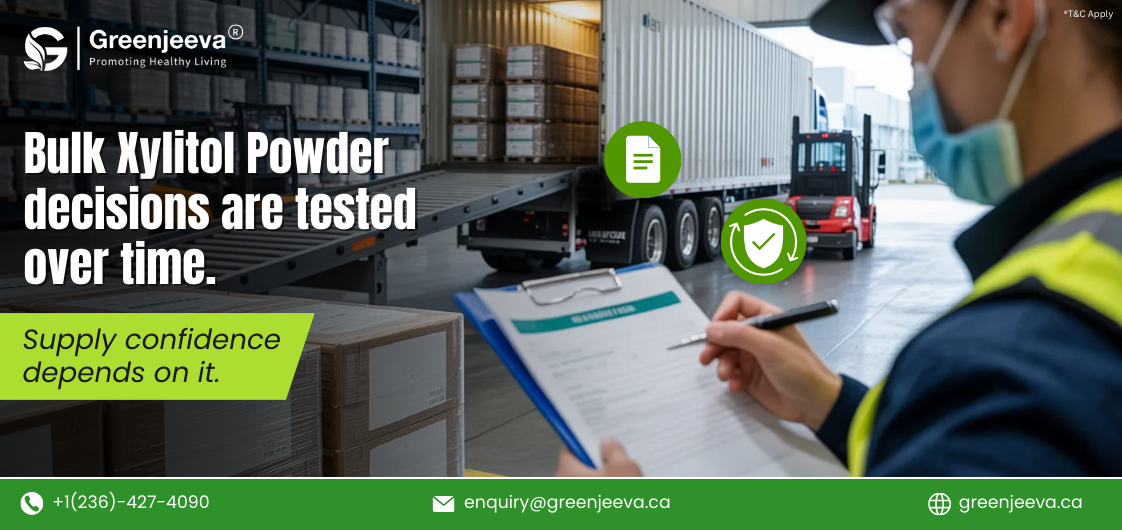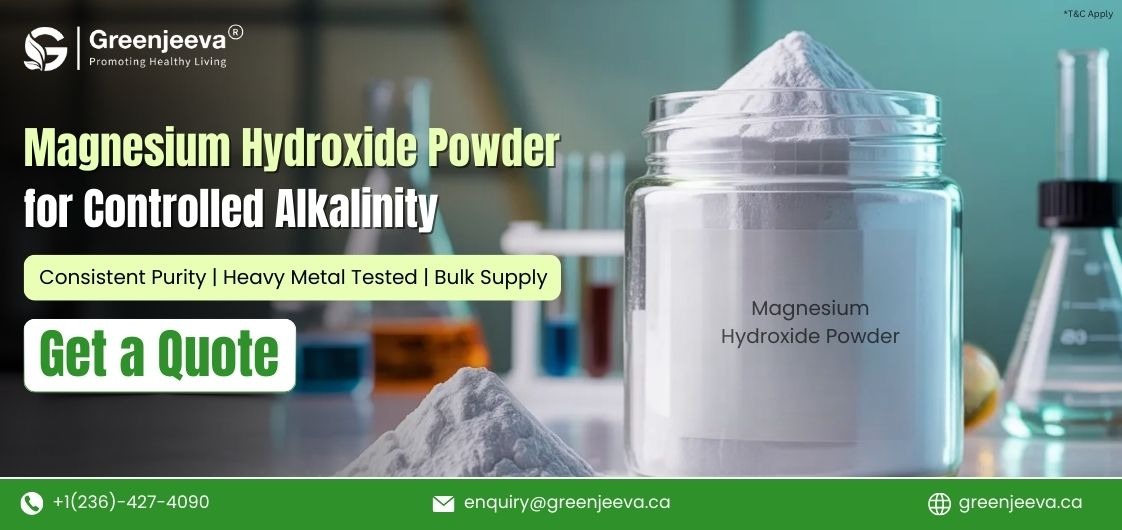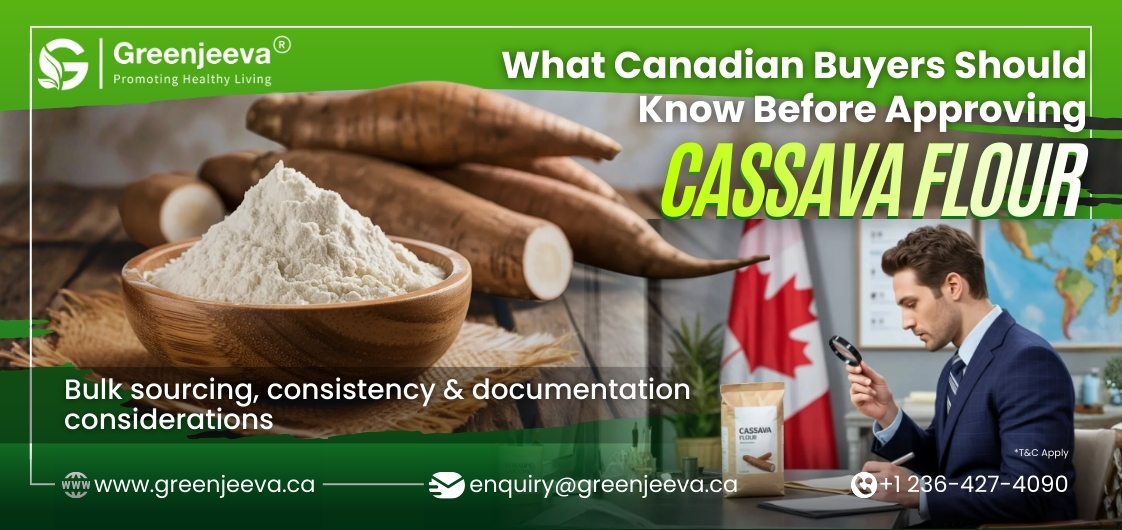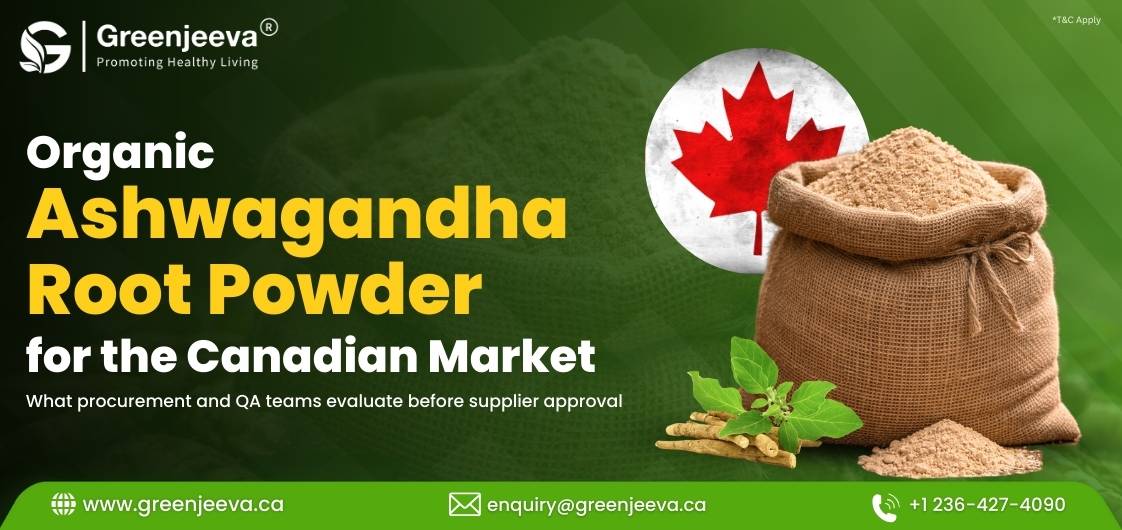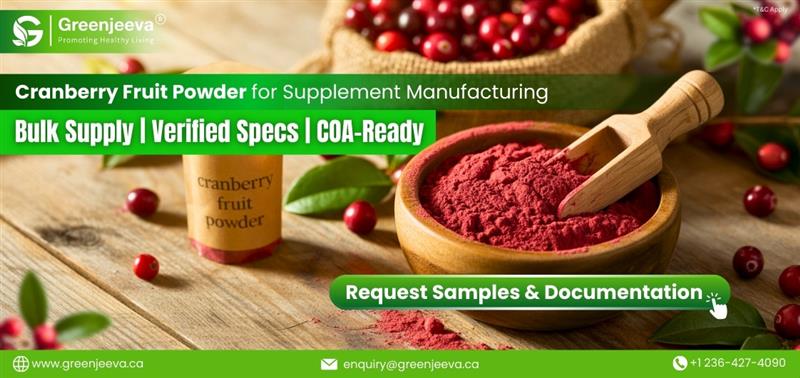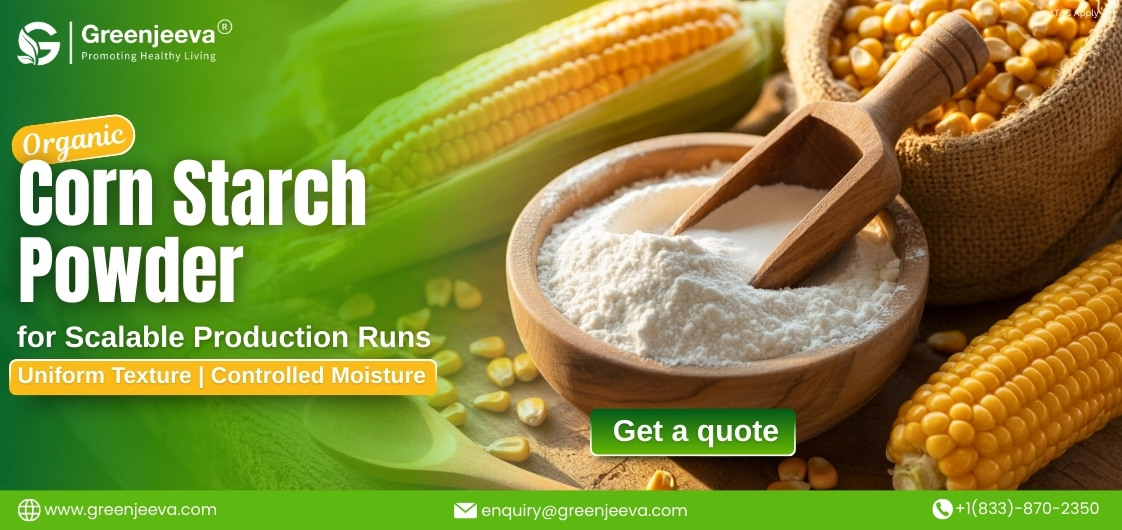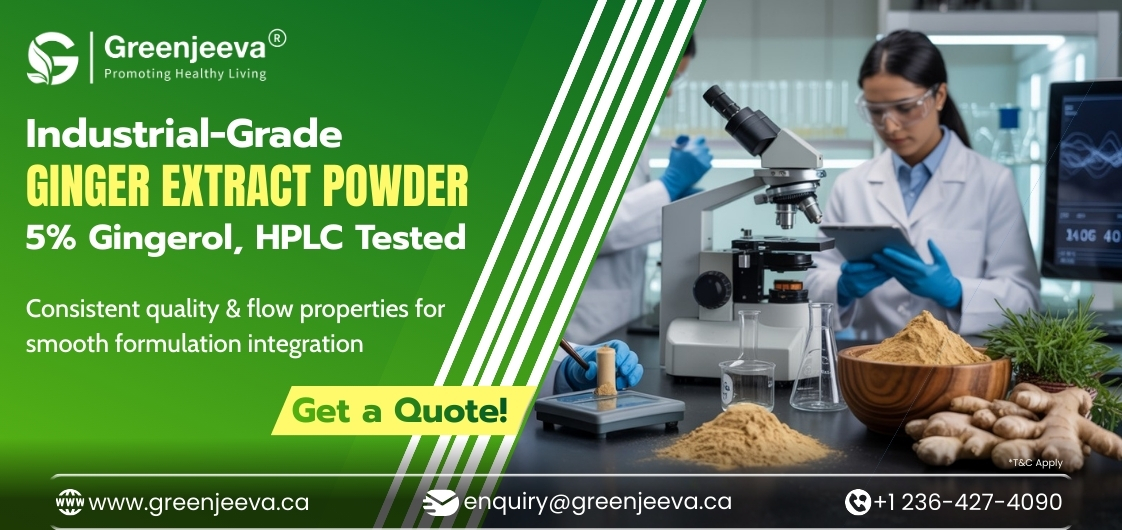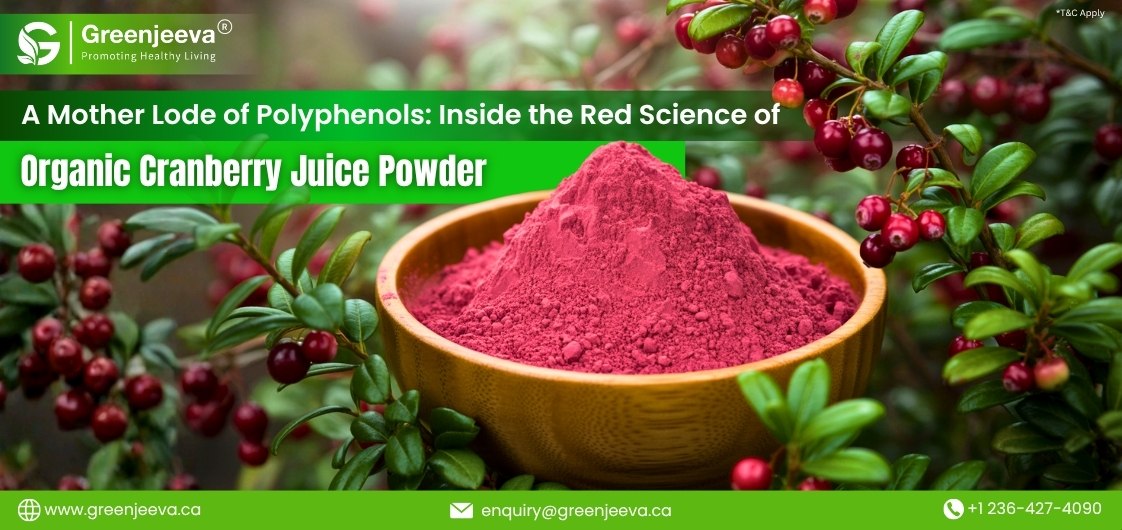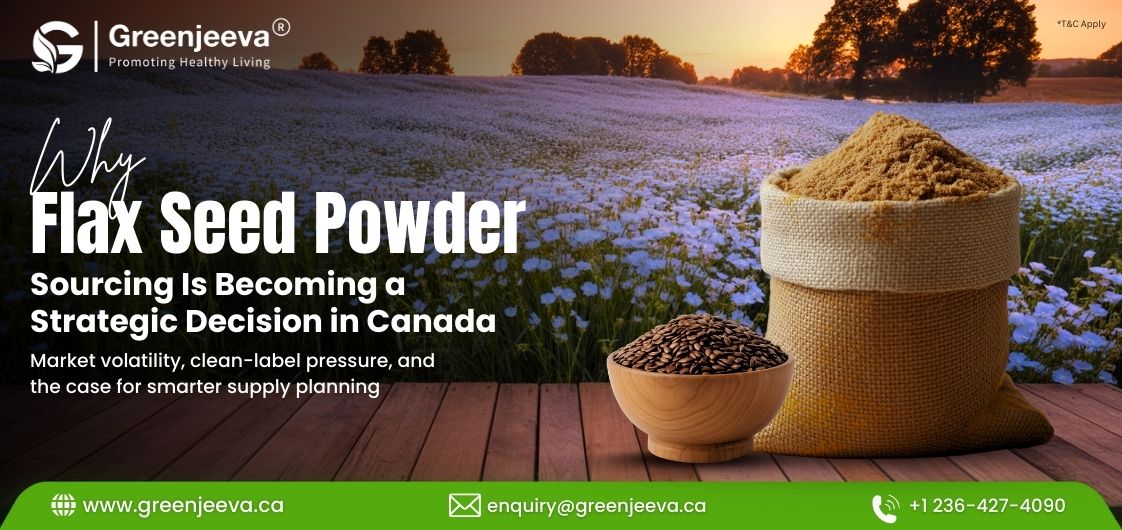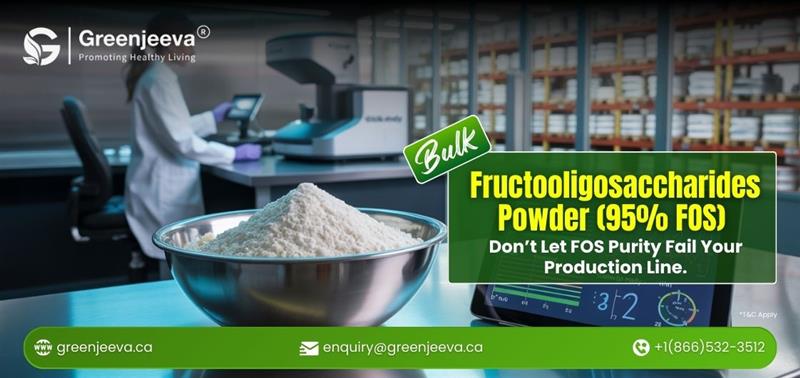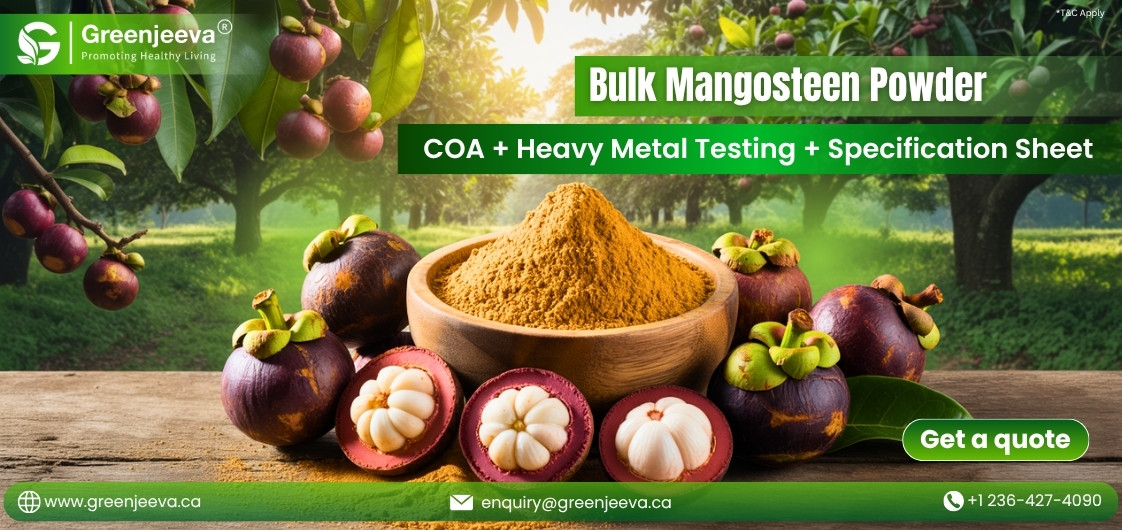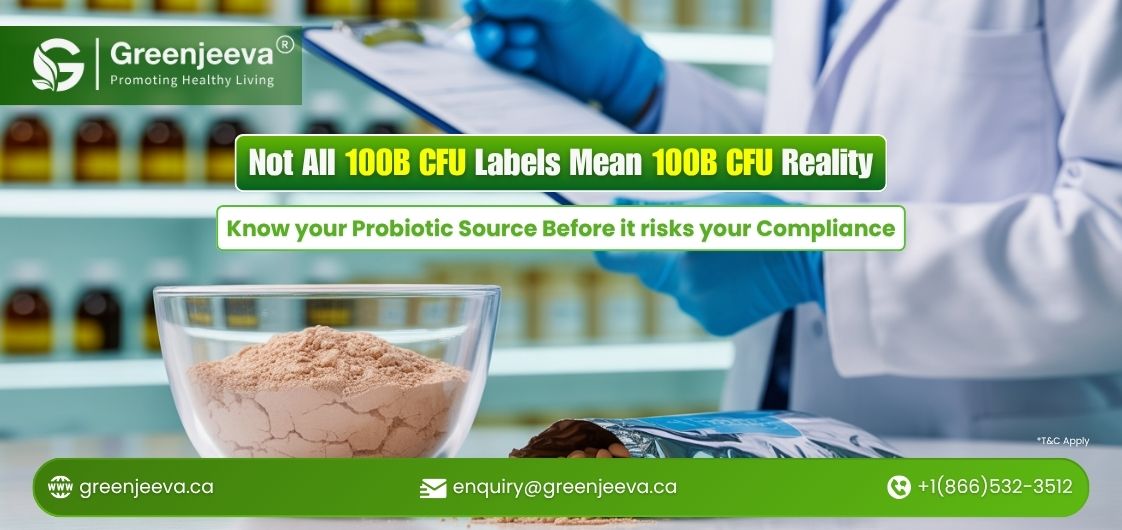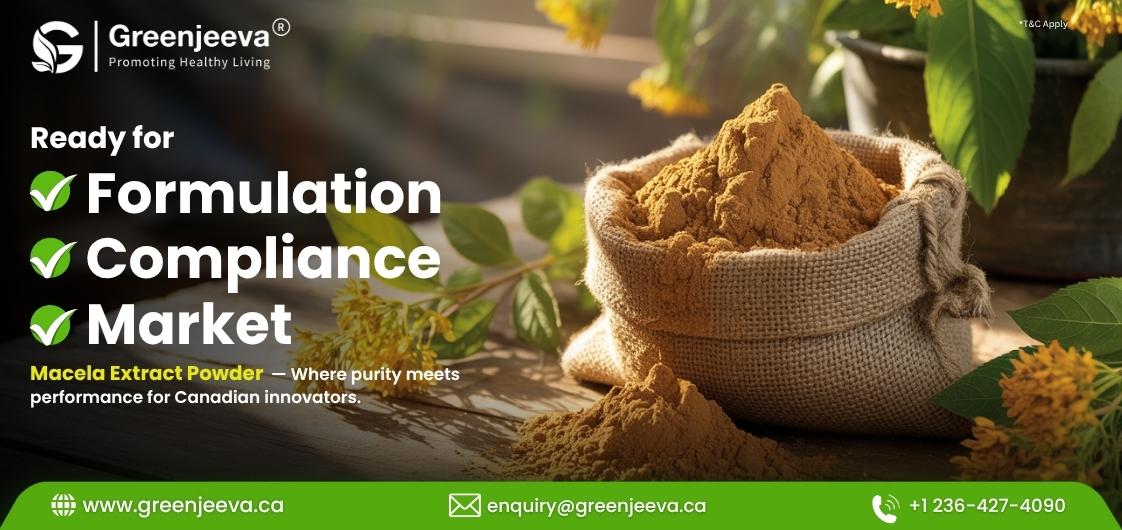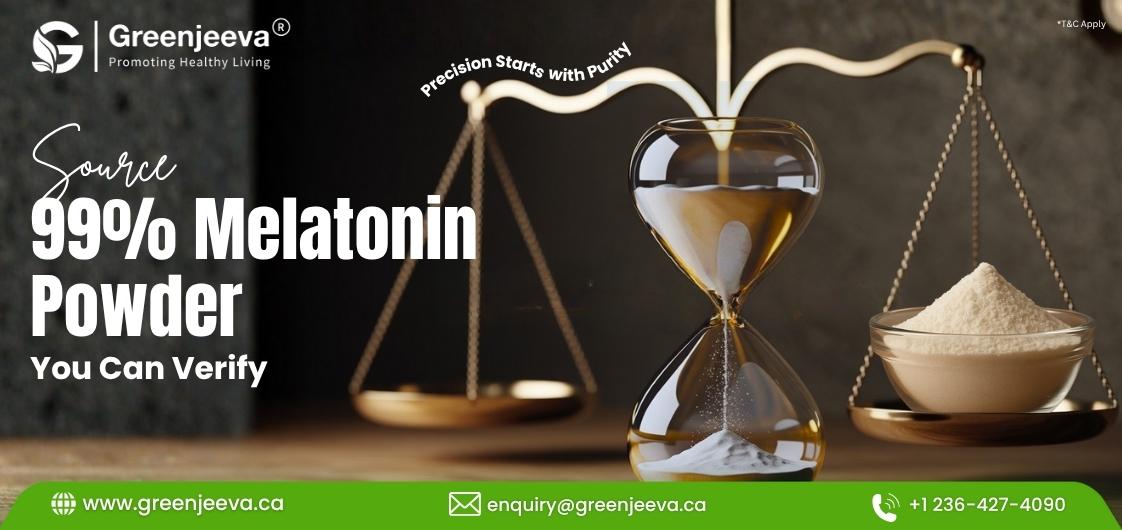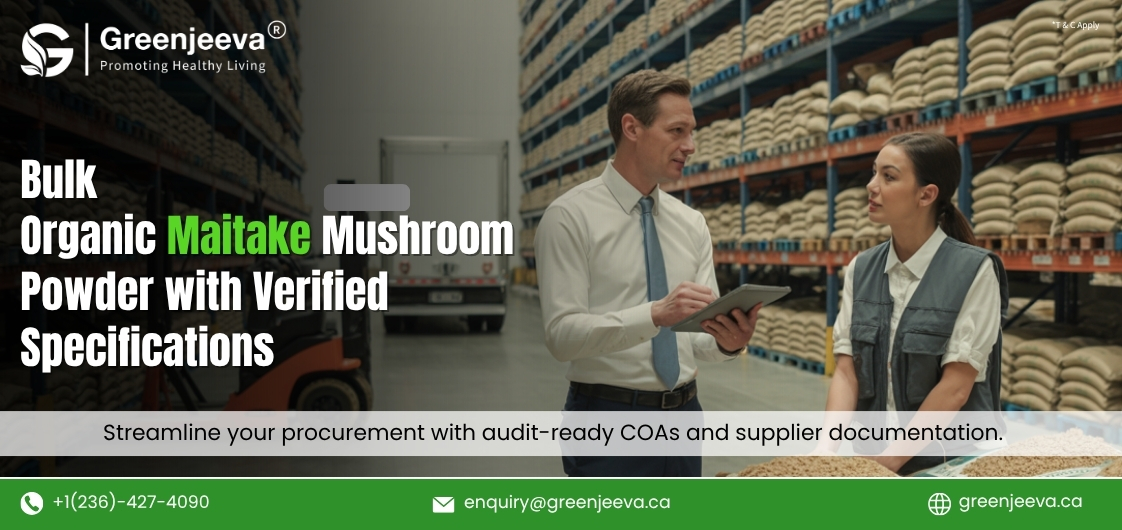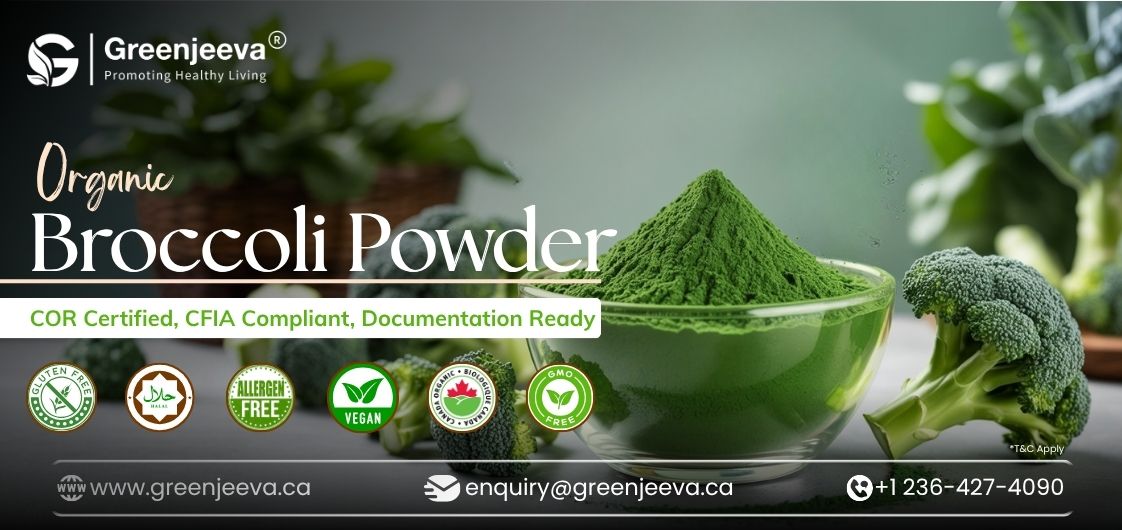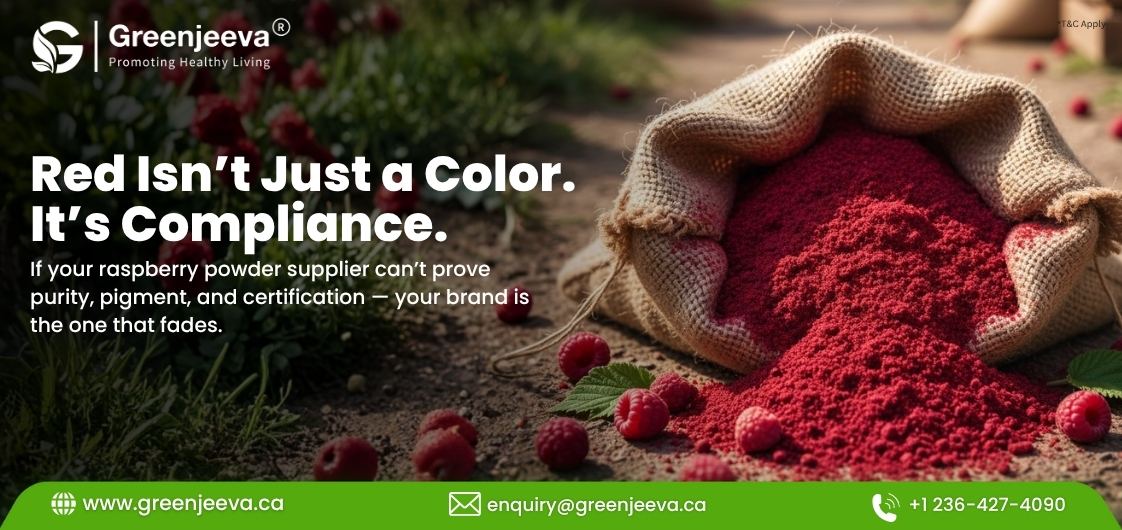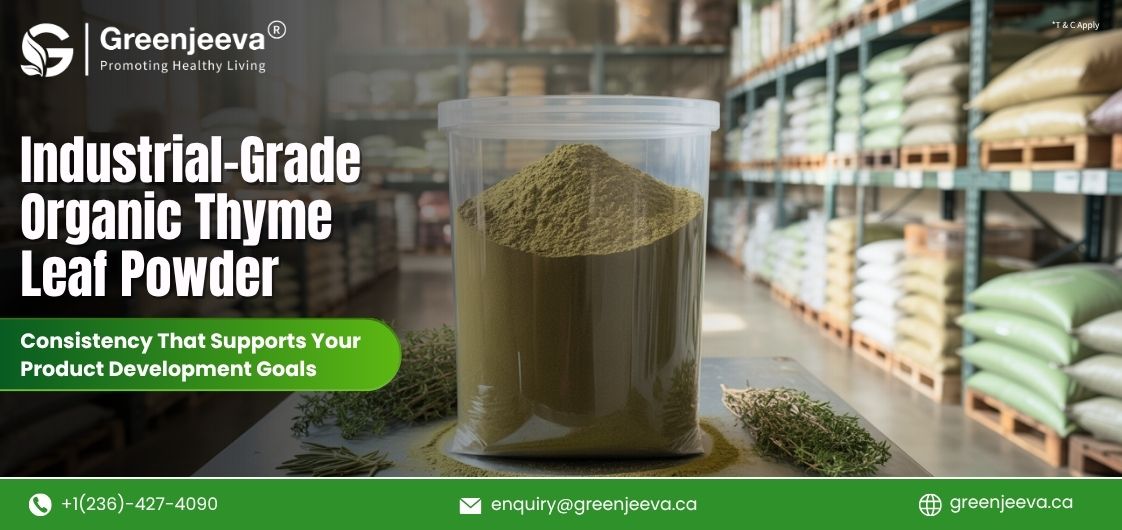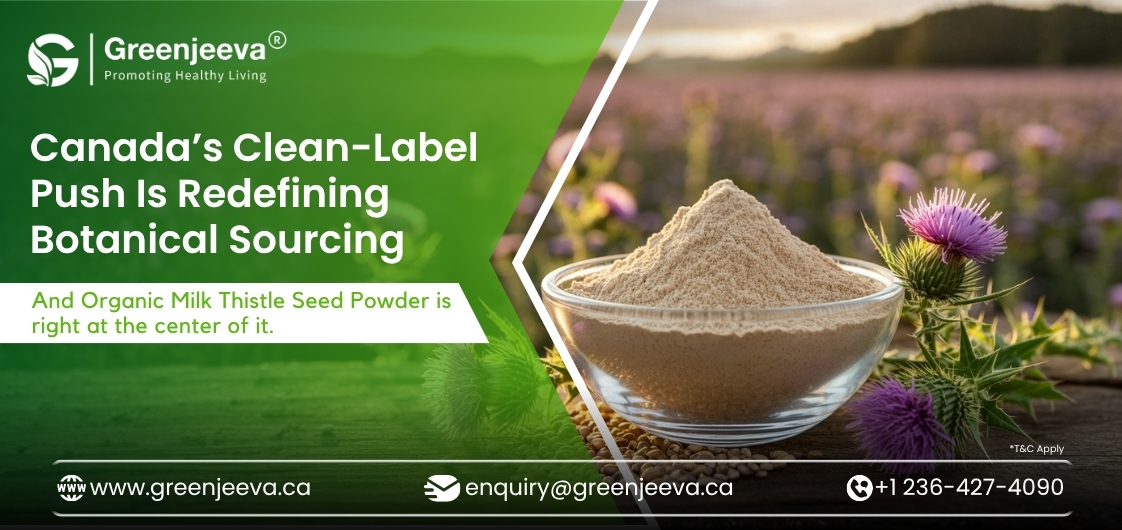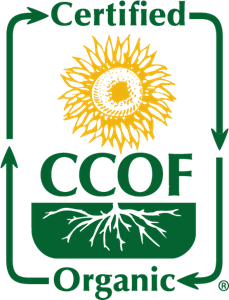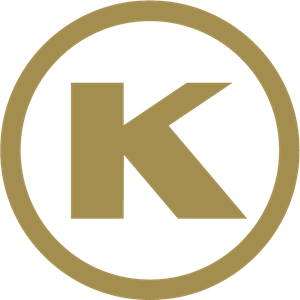Marine collagen powder is drawing strong attention from beverage formulators who are searching for versatile, label-friendly ingredients that align with consumer preferences for clean, protein-enriched drinks. As the functional beverage market continues to evolve in Canada and globally, this ingredient is being tested in a wide range of formulations—from protein waters to collagen lattes.
Its growing demand raises one question: what’s making marine collagen a key material for beverage R&D teams and sourcing managers today? Let’s take a closer look at how it is shaping product innovation, formulation strategy, and sourcing decisions in the functional beverage space.
What Makes Marine Collagen Ideal for Functional Beverages?
Marine collagen powder is valued in beverage manufacturing for its solubility, neutral taste, and compatibility with clean-label formulations, making it suitable for modern protein-enriched drinks.
From a formulation perspective, marine collagen peptides have a low molecular weight, allowing quick dispersion and high solubility in both hot and cold liquids. This functional behavior makes them easier to integrate into ready-to-drink (RTD) and instant beverage systems compared to traditional proteins.
For beverage technologists, this translates into fewer sedimentation issues, smoother mouthfeel, and stable protein distribution throughout shelf life. Marine collagen also works efficiently at a wide pH range, an important property for acidic beverages such as flavored waters, juices, or electrolyte drinks.
When sourced through sustainable marine collagen processing, manufacturers can support cleaner ingredient narratives while minimizing raw material waste from fishery by-products—a growing procurement priority in Canada.
How Do Beverage Formulators Use Marine Collagen Powder?
Beverage developers use marine collagen for protein fortification, texture optimization, and clean-label formulation goals across various drink categories.
Formulators primarily use food grade marine collagen in:
-
– Protein waters and beauty beverages for added protein content and label appeal.
-
– Functional coffee, tea, and cocoa drinks, where its neutral taste supports flavor balance.
-
– RTD shots and powdered drink blends that demand instant solubility and visual clarity.
-
– Hybrid formulations that mix marine collagen with plant-based proteins for texture and sensory balance.
Since marine collagen does not clump easily, it integrates smoothly with flavor bases, sweeteners, and minerals, allowing processors to reduce mechanical agitation or additional stabilizers.
Procurement teams usually prefer hydrolyzed marine collagen grades because of their consistent peptide size distribution, which ensures predictable viscosity during large-scale mixing and filling.
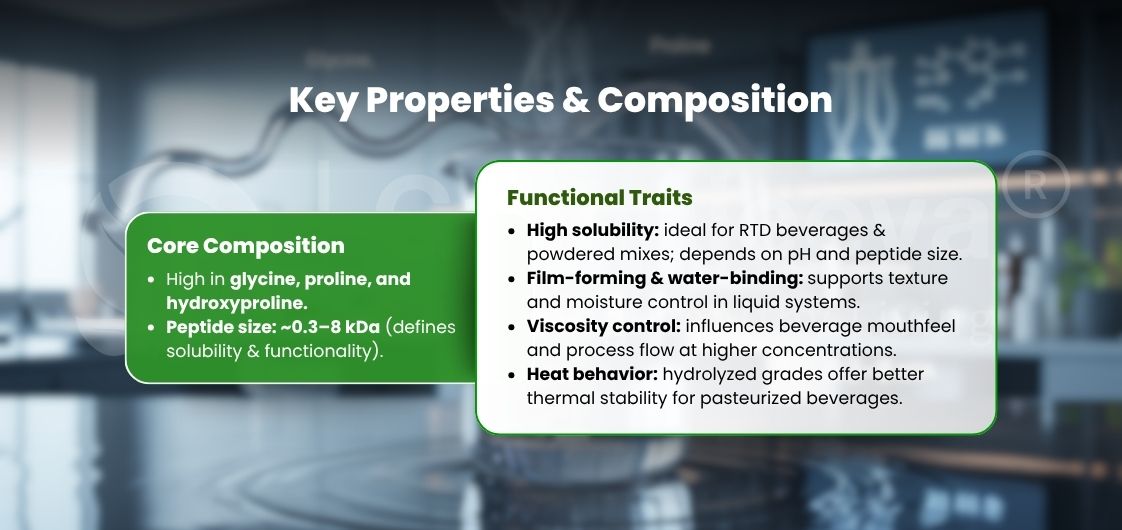
Can Marine Collagen Withstand Heat Processing in Drinks?
Hydrolyzed marine collagen maintains stability in most beverage processing methods, but validation under specific thermal and pH conditions is essential before scale-up.
In beverage manufacturing, heat tolerance is critical. Hydrolyzed marine collagen peptides can generally handle moderate heat processing such as pasteurization or hot-fill methods when properly stabilized. However, very high-temperature exposure for extended periods can cause partial denaturation, affecting solubility and sensory quality.
To manage this, formulators often perform pilot tests under intended process conditions—temperature, pH, and holding time—to verify protein stability. Some manufacturers use low-temperature processing or aseptic cold-fill methods to retain peptide integrity while maintaining microbial safety.
When properly handled, marine collagen powder offers the thermal functionality needed for modern beverage lines, including clear protein waters and instant functional drinks.
Why Are Beverage Brands Adding Marine Collagen to Their Formulations?
Beverage manufacturers are using marine collagen to support clean-label, sustainability, and formulation performance goals that align with evolving consumer and regulatory expectations.
For sourcing and R&D teams, the decision to add marine collagen in functional beverages isn’t just about following a trend—it’s about meeting formulation and regulatory demands effectively.
Key reasons driving inclusion include:
-
– Clean-label positioning: Marine collagen supports ingredient transparency when processed with minimal additives.
-
– Sustainability compliance: Sustainable marine collagen sourcing aligns with circular economy models that repurpose by-products from the seafood industry.
-
– Functional formulation value: Its neutral flavor, dispersibility, and clarity make it practical for multi-ingredient systems.
-
– Market differentiation: The Canadian marine collagen market is expanding as formulators seek recognizable, traceable ingredients to meet B2B buyer expectations.
As brands move toward environmentally responsible ingredient sourcing, suppliers providing bulk marine collagen powder in Canada with transparent documentation—COA, traceability, and sustainability data—are becoming strategic partners for beverage manufacturers.
What Type of Collagen Is Best for Functional Beverages?
Hydrolyzed marine collagen peptides are generally preferred for beverage use due to their smaller molecular weight, water solubility, and neutral profile.
Among available types, hydrolyzed marine collagen—also known as marine collagen peptides—offers the most favorable characteristics for beverage formulations. Its molecular size (often between 1–5 kDa) ensures rapid solubility, which simplifies manufacturing and minimizes texture variation during storage.
Unlike gelatin or larger peptide forms, hydrolyzed marine collagen blends well with plant extracts, vitamins, minerals, and natural flavors without forming visible precipitates.
Beverage developers also evaluate the grade (food grade vs. cosmetic grade), source traceability, and documentation package when selecting collagen ingredients. For instance, certified marine collagen powder suppliers in Canada typically provide COA, MSDS, heavy metal testing reports, and sustainability or chain-of-custody certificates for compliance assurance.
Procurement teams buying collagen at wholesale or bulk volumes prioritize suppliers that maintain consistent batch traceability and third-party testing, ensuring quality control throughout production.
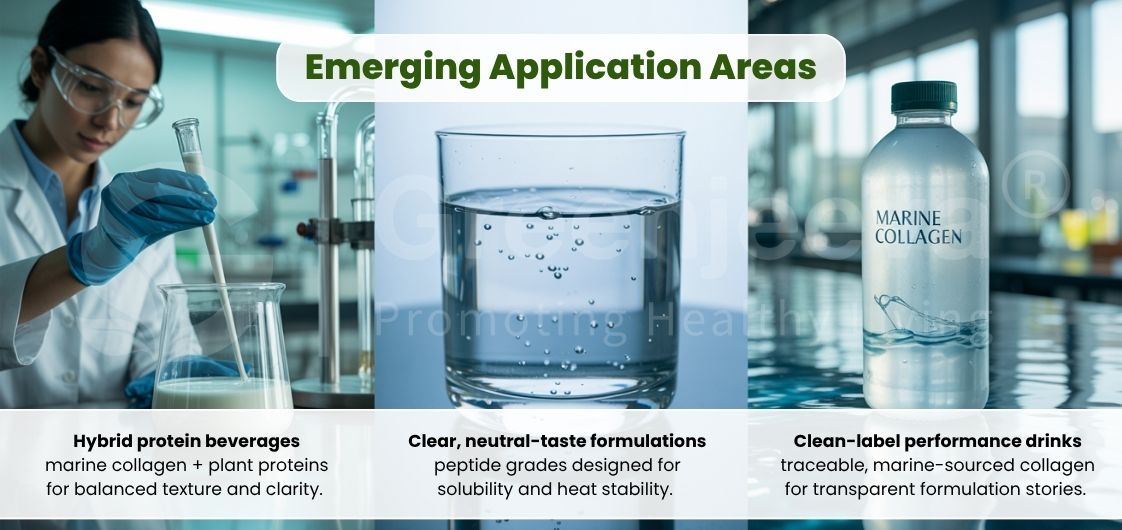
Where Is the Marine Collagen Beverage Market Headed in Canada?
Canada’s beverage sector is adopting marine collagen for clean-label formulations, driven by sustainability narratives and R&D innovation in protein fortification.
The Canadian functional beverage market is evolving rapidly, driven by consumer interest in label clarity and sustainable sourcing. Marine collagen, with its traceable marine origin and efficient functional properties, fits these expectations well.
Manufacturers and marine collagen powder suppliers in Canada are investing in scalable processing facilities that ensure regulatory compliance, food safety, and export readiness. The trend also aligns with the shift toward protein fortification for beverages, where both performance and sourcing transparency matter equally.
With rising global demand, establishing early supplier partnerships for bulk marine collagen powder supply helps secure long-term price stability and consistent specifications, especially as marine collagen wholesale availability can fluctuate with seasonal marine raw material cycles.
Conclusion
Marine collagen powder is increasingly seen as a technically reliable and label-appropriate ingredient for the next generation of functional beverages. For beverage developers and sourcing teams, its versatility in formulation and its sustainability profile make it a practical option in a competitive market.
As demand continues to grow in Canada, the industry focus will remain on clean-label collagen ingredient sourcing, validated specifications, and traceable supply chains that meet the expectations of both R&D professionals and procurement heads.
Looking to strengthen your functional beverage formulations with traceable, high-quality ingredients?
Green Jeeva supports manufacturers with a verified bulk marine collagen powder supply, complete documentation (COA, MSDS, and third-party test reports), and consistent quality assurance across every shipment.
Get a quote to discuss your sourcing requirements or request a sample for pilot-scale evaluation.
**The Food and Drug Administration has not evaluated these statements. This product is not intended to diagnose, treat, cure, or prevent any disease.**


